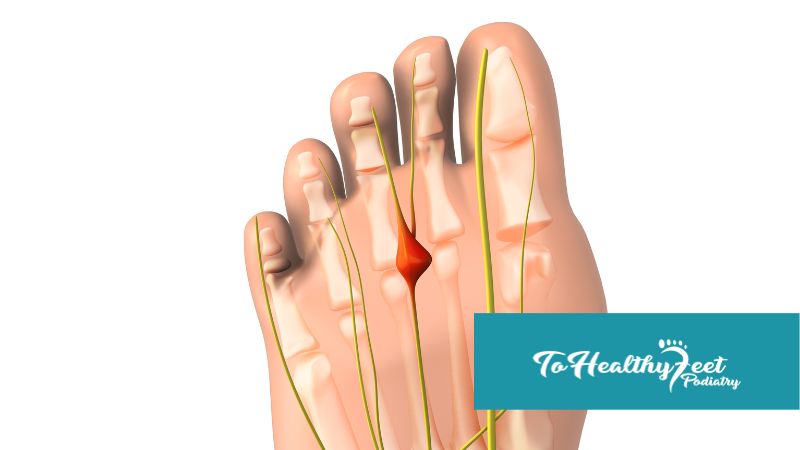Running marathons is a thrilling and rewarding experience, but the rigorous training and long distances can sometimes lead to foot problems, including Morton's neuroma. This painful condition, caused by the thickening of tissue around the nerves leading to your toes, can turn your marathon dreams into a painful ordeal. At To Healthy Feet Podiatry in NYC, we want to help you prevent Morton's neuroma and keep your feet in top shape. Here are some practical tips to help you avoid this condition and enjoy a pain-free race day.
Wear Proper Footwear
The first and most crucial step in preventing Morton's neuroma is to wear proper footwear. As a marathon runner, your shoes are your most vital gear. Make sure your running shoes fit well and offer ample support, particularly in the forefoot area. Shoes that are too tight can compress the nerves in your feet, leading to the development of neuromas. Opt for shoes with a wide toe box that allows your toes to spread naturally, and steer clear of high heels or pointed shoes that can exacerbate the problem.
Regularly replace your running shoes to ensure they continue to provide adequate cushioning and support. The general guideline is to replace your shoes every 300-500 miles, but this can vary depending on your running style and the surfaces you run on. Pay attention to any signs of wear and tear, and don’t hesitate to invest in a new pair if you notice a decrease in support or comfort.
Incorporate Foot Exercises
Strengthening and stretching your feet can significantly help in preventing Morton's neuroma. Incorporate specific foot exercises into your routine to improve the strength and flexibility of your foot muscles. Exercises like toe curls, arch lifts, and calf stretches can help maintain the health of your feet and reduce the risk of nerve compression.
Additionally, consider using a golf ball or a foot roller to massage the soles of your feet. This can help relieve any tension in the muscles and tissues, promoting better circulation and nerve health. Make these exercises a regular part of your training regimen to keep your feet strong and resilient.
Monitor Your Running Technique
Your running technique plays a crucial role in the health of your feet. Pay attention to your stride and landing pattern to reduce the stress on your forefoot. Aim to land on the midfoot rather than the toes or heels, as this can distribute the impact more evenly and reduce the pressure on the nerves in your feet.
Consider working with a running coach or physiotherapist to analyze your running form and make any necessary adjustments. Small changes in your technique can make a big difference in preventing injuries and ensuring that your feet stay healthy throughout your training and the marathon itself.
Listen to Your Body
One of the most important tips for preventing Morton's neuroma is to listen to your body. Pain and discomfort are signals that something is wrong, and it’s crucial not to ignore them. If you start to experience symptoms of Morton's neuroma, such as tingling, numbness, or sharp pain in the ball of your foot, take action immediately.
Rest and reduce your running mileage to give your feet a break. Ice the affected area to reduce inflammation and consider using over-the-counter pain relievers if needed. If the pain persists, seek advice from a podiatrist at To Healthy Feet Podiatry. Early intervention can prevent the condition from worsening and allow you to continue your training with minimal disruption.
Preventing Morton's neuroma is essential for NYC Marathon runners who want to stay pain-free and perform their best. By wearing proper footwear, incorporating foot exercises, monitoring your running technique, and listening to your body, you can reduce your risk of developing this painful condition.
If you or a loved one is recovering from morton’s neuroma, don't hesitate to reach out to us for personalized care and treatment plans. Our team of experienced professionals is committed




